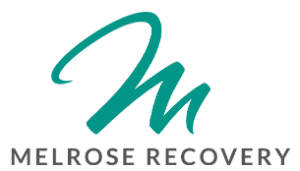
Addiction Recovery Specialists
Addiction Treatment Illinois
Addiction Treatment Illinois – Since 2015 Melrose Recovery, your pathway to transformation and healing. Located in the vibrant heart of Los Angeles, California just moments away from iconic Hollywood and the picturesque beaches of Santa Monica and Venice, we are dedicated to changing lives. Our comprehensive treatment approach encompasses detoxification, residential care, and aftercare services, all tailored to meet each couples or individual’s unique needs on their recovery journey.
Led by a compassionate team of addiction professionals and counselors, we offer a range of therapy programs designed to support and guide individuals toward lasting sobriety. At Melrose Recovery, we believe in the power of personalized care and diverse treatment options to pave the way for a brighter future.
Get Help Now!
Our Mission

Our Addiction Recovery Programs – Addiction Treatment Illinois
- Mental Health
- Anxiety
- Depression
- Relapse Prevention
Our Treatment Programs
- Individual
- Group
- Family
- Psychotherapy
Prescription Drugs Commonly Abused In The United States
Opioids (Pain Relievers)
- Oxycodone (OxyContin, Percocet)
- Hydrocodone (Vicodin, Norco)
- Morphine
- Codeine
- Fentanyl (also illicitly manufactured)
- Methadone
- Oxymorphone (Opana)
Stimulants (ADHD Medications)
- Amphetamine/Dextroamphetamine (Adderall)
- Methylphenidate (Ritalin, Concerta)
- Dexmethylphenidate (Focalin)
- Lisdexamfetamine (Vyvanse)
Stimulants
- Cocaine
- Crack cocaine
- Methamphetamine (crystal meth)
- MDMA (Ecstasy, Molly)
Cannabinoids
- Marijuana (still federally illegal, though legalized in many states)
- Synthetic cannabinoids (K2, Spice)
Inhalants
- Paint thinners
- Gasoline
- Glue
- Aerosol sprays (Galaxy Gas, Freon, Computer Dusters, Whipped Cream Cans)
Central Nervous System Depressants
Benzodiazepines:
- Alprazolam (Xanax)
- Diazepam (Valium)
- Lorazepam (Ativan)
- Clonazepam (Klonopin)
Sleep Medications:
- Zolpidem (Ambien)
- Eszopiclone (Lunesta)
Barbiturates:
- Phenobarbital
- Secobarbital
- Amobarbital
Opioids
- Heroin
- Illicitly manufactured Fentanyl and analogs
- U-47700 (“Pink”)
Hallucinogens
- LSD (Acid)
- Psilocybin (Magic Mushrooms)
- PCP (Phencyclidine)
- Ketamine
- DMT
- Salvia divinorum
Dissociatives
- Nitrous oxide (laughing gas)
- DXM (dextromethorphan in high doses)
Others
- Anabolic steroids (illegally used for performance enhancement)
- Bath salts (synthetic cathinones)
- Kratom (legal in some states, but controversial)
Hardest-Hit Areas in Illinois by Substance Abuse
Substance abuse continues to impact communities across Illinois. While no official ranked list of the 25 hardest-hit areas exists, the following counties and regions are consistently identified in reports due to high overdose rates, fentanyl prevalence, and related concerns.
Counties with High Overdose Death Rates
-
Winnebago County
Reports some of the highest overdose death rates in Illinois, with fentanyl involved in a significant majority of cases. -
Kankakee County
Experiences elevated rates of overdose deaths, most involving fentanyl. -
Vermilion County
Records high overdose rates, with fentanyl present in many fatalities. -
Cook County
Includes Chicago and consistently reports thousands of overdose deaths, largely linked to fentanyl. -
Madison County
Faces a significant overdose crisis, with a high percentage tied to fentanyl. -
Peoria County
Shows high drug-related mortality rates, especially involving opioids. -
Jefferson County
Noted for substantial overdose rates, with opioids as a major factor. -
Marion County
Reports high drug-related death rates. -
Champaign County
Experiences elevated overdose deaths, with fentanyl a frequent contributor. -
Sangamon County
Reports overdose death rates above the state average. -
St. Clair County
Affected by significant drug-related fatalities. -
LaSalle County
Known for elevated overdose death rates. -
McHenry County
Saw dozens of overdose deaths, though numbers have fluctuated year to year. -
DuPage County
Reports substantial overdose deaths, primarily involving opioids. -
Lake County
Faces high rates of fatal overdoses, with fentanyl involved in most cases. -
Kane County
Experiences a notable number of opioid-related deaths annually. -
Will County
Reports significant overdose fatalities tied to heroin and fentanyl. -
McLean County
Saw an increase in drug-related deaths in recent years. -
Kendall County
Reports a rising number of overdose deaths. -
Tazewell County
Records consistent drug-related mortality. -
DeKalb County
Sees drug-related deaths that have risen compared to prior years. -
Clair County
Faces elevated overdose death rates. -
Other rural counties
Several smaller and rural counties report significant substance abuse impacts, though some data is suppressed for confidentiality.
Metro and Suburban Hotspots
-
Chicago (Cook County)
The epicenter of Illinois’ opioid crisis, with the majority of deaths linked to fentanyl. -
Chicago suburbs (Lake, DuPage, Kane, Will, McHenry Counties)
Together these counties report hundreds of deaths yearly, though some areas have seen recent declines. -
Suburban communities (e.g., Worth, Broadview, Maywood, Forest Park)
Identified for particularly high opioid mortality rates within Cook County.
Key Notes
-
Fentanyl continues to drive overdose deaths across urban, suburban, and rural areas in Illinois.
-
Chicago and its surrounding counties account for the majority of overdose fatalities.
-
Smaller and rural counties are also heavily affected, but data suppression limits reporting detail.
Addiction Recovery in The United States
What is addiction recovery?
Addiction recovery is the process of overcoming substance use disorder and rebuilding a healthy, meaningful life without the use of drugs or alcohol.
How long does addiction recovery take?
Recovery is a lifelong process, but structured treatment programs typically last from 30 days to a year or more, depending on individual needs.
What types of treatment are available for addiction?
Common treatment options include inpatient rehab, outpatient programs, detox services, medication-assisted treatment (MAT), therapy, and support groups.
What is detox, and why is it important?
Detox is the process of clearing substances from the body, often the first step in recovery. It helps manage withdrawal symptoms and prepare for further treatment.
What is the difference between inpatient and outpatient treatment? – Addiction Treatment Illinois
Inpatient treatment involves living at a facility 24/7, while outpatient treatment allows individuals to live at home and attend scheduled sessions.
What role does therapy play in addiction recovery? – Addiction Treatment Illinois
Therapy helps individuals understand the root causes of addiction, develop coping skills, and rebuild emotional health.
What is Medication-Assisted Treatment (MAT)? – Addiction Treatment Illinois
MAT uses FDA-approved medications like methadone, buprenorphine, or naltrexone to treat opioid and alcohol addiction, combined with counseling and therapy.
What are 12-step programs? – Addiction Treatment Illinois
12-step programs, such as Alcoholics Anonymous (AA) and Narcotics Anonymous (NA), provide peer support through a structured recovery process.
Are there alternatives to 12-step programs? – Addiction Treatment Illinois
Yes, alternatives include SMART Recovery, LifeRing, Women for Sobriety, and secular recovery groups that focus on science-based methods.
Is addiction recovery covered by insurance? – Addiction Treatment Illinois
Many insurance plans, including Medicaid and private insurance, cover addiction treatment under the Mental Health Parity and Addiction Equity Act.
Can addiction be cured? – Addiction Treatment Illinois
Addiction is considered a chronic condition. While it may not be “cured” in the traditional sense, it can be successfully managed with ongoing recovery efforts.
What is relapse and is it common? – Addiction Treatment Illinois
Relapse is a return to substance use after a period of sobriety. It is common and often considered a part of the recovery journey, not a failure.
How can someone prevent relapse? – Addiction Treatment Illinois
Relapse prevention strategies include therapy, support groups, lifestyle changes, avoiding triggers, and having a relapse prevention plan.
What are sober living homes? – Addiction Treatment Illinois
Sober living homes are group residences for people recovering from addiction, offering a structured, substance-free environment.
What is dual diagnosis treatment? – Addiction Treatment Illinois
Dual diagnosis treatment addresses both addiction and co-occurring mental health disorders, such as depression, anxiety, or PTSD.
How does addiction recovery differ for adolescents? – Addiction Treatment Illinois
Adolescent recovery programs focus on developmental needs, education, family involvement, and peer influence.
Are there gender-specific recovery programs? – Addiction Treatment Illinois
Yes, some programs cater specifically to men or women to address gender-specific issues and create a more comfortable recovery setting.
What role does family play in addiction recovery? – Addiction Treatment Illinois
Family involvement can greatly improve outcomes by offering support, participating in therapy, and helping to create a stable environment.
What is the role of peer support in recovery? – Addiction Treatment Illinois
Peer support from others who’ve experienced addiction fosters encouragement, accountability, and shared understanding throughout recovery.
Are faith-based recovery programs effective? – Addiction Treatment Illinois
For some individuals, faith-based programs like Celebrate Recovery provide spiritual support that enhances motivation and healing.
What are the first steps to seeking help for addiction? – Addiction Treatment Illinois
The first steps include recognizing the problem, reaching out for help, and contacting a treatment provider or helpline.
How do I find a reputable addiction treatment center? – Addiction Treatment Illinois
You can find accredited treatment centers through SAMHSA’s treatment locator, your doctor, or referrals from trusted sources.
What happens after rehab? – Addiction Treatment Illinois
Aftercare typically includes outpatient therapy, sober living, ongoing peer support, and relapse prevention planning.
Can people recover from addiction without rehab? – Addiction Treatment Illinois
Yes, some people recover through support groups, therapy, or personal efforts, but professional help often improves success rates.
What is the success rate of addiction recovery? – Addiction Treatment Illinois
Success rates vary widely depending on the substance, treatment type, and support system, but ongoing engagement increases the chance of long-term sobriety.
Insurance Coverage Made Easy at Melrose Recovery
Health Insurance PPO Plans for Addiction Treatment – Addiction Treatment Illinois
PPO Plans for Melrose Recovery
Finding effective treatment for drug and alcohol addiction is one of the most important steps in the recovery journey. For many individuals and families, navigating how to pay for rehab can be a major concern. Fortunately, Melrose Recovery, a leading addiction treatment center, accepts a wide range of PPO (Preferred Provider Organization) health insurance plans, making high-quality care more accessible and affordable.
Why Choose Melrose Recovery?
Melrose Recovery offers a structured and supportive environment for individuals seeking recovery from substance abuse disorders. Their programs include:
-
Medical Detox
-
Residential Inpatient Treatment
-
Dual Diagnosis Treatment
-
Individual and Group Therapy
-
Aftercare Planning
What sets Melrose apart is their client-centered approach, experienced clinical team, and commitment to long-term recovery. Located in Los Angeles, the facility provides a safe and comfortable setting to begin healing.
What Are PPO Insurance Plans?
PPO insurance plans allow policyholders to see healthcare providers both inside and outside of their insurance network, usually without a referral. When it comes to addiction treatment, this flexibility can be vital.
Key PPO benefits for rehab coverage:
-
Out-of-network options: You can still receive coverage for facilities not directly in your provider’s network.
-
No referral needed: You don’t need a referral from a primary care physician to start treatment.
-
More provider choices: PPO plans give you more freedom to choose the rehab facility that fits your needs.
Does Melrose Recovery Accept My PPO Insurance?
Melrose Recovery works with most major PPO insurance providers, including but not limited to:
- Aetna
- AmeriHealth
- Anthem
- Blue Cross Blue Shield
- Cigna
- Hawaii Medical Service Association (HMSA)
- Humana
- Kaiser Permanente
- Medical Mutual
- Premera Blue Cross
- UnitedHealthcare
Melrose Recovery’s admissions team is available 24 hours a day 714-442-7782 to verify your insurance benefits quickly and confidentially. This process helps determine your coverage, deductible, co-pays, and out-of-pocket maximums before starting treatment.
Verifying Insurance Coverage
To find out if your PPO insurance plan covers treatment at Melrose Recovery:
-
Call Melrose Recovery directly – Speak with an admissions specialist who can walk you through the insurance verification process.
-
Submit insurance info online – Many treatment centers, including Melrose, offer a secure online form for quick verification.
-
Check with your insurer – You can also contact your insurance company directly and ask about your behavioral health benefits.
The Importance of Getting Help
Addiction is a chronic and progressive condition—but with the right support, recovery is absolutely possible. By accepting a variety of PPO plans, Melrose Recovery helps reduce financial barriers to care, so individuals and families can focus on healing rather than costs.
Get Started on Your Personal Journey to Addiction Recovery
Before you can get to aftercare, you have to take the first step. Overcoming addiction is a genuine choice when you decide to quit and enlist the help of therapist. Contact the addiction treatment specialist at Melrose Recovery to start the rehab admission paperwork and process.
Licenses and Accreditations




